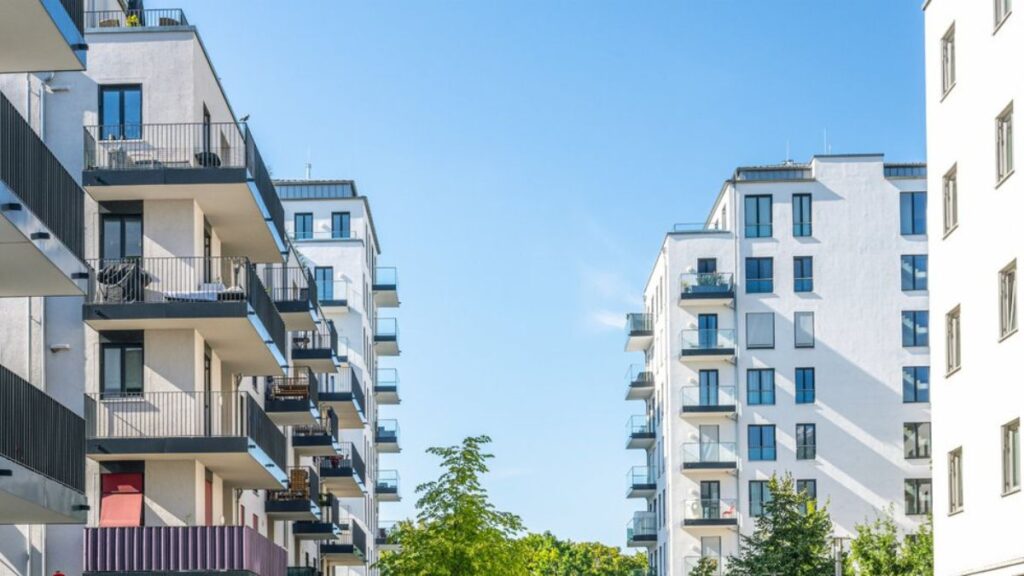The New Gatekeepers of Urban Living
Scroll through any German housing portal today — from Berlin’s bohemian districts to Munich’s moneyed quarters — and one word keeps surfacing: Mietmakler.
They’re the real estate whisperers, the matchmakers of modern living, the intermediaries standing between you and that perfect apartment with parquet floors and balcony dreams.
But what exactly is a Mietmakler?
And why are they suddenly the most discussed, sometimes controversial, yet utterly indispensable figures in Germany’s rental market?
To understand that, we need to unpack not just a profession, but a system — one deeply woven into Germany’s real estate DNA.
What a Mietmakler Really Does — Beyond the Glossy Listings
At its simplest, a Mietmakler is a rental broker — a licensed professional who connects tenants and landlords.
But unlike the glamorized image of a real estate agent in a tailored suit showing penthouses, a Mietmakler’s day-to-day is more gritty, grounded, and crucially — governed by one of Europe’s strictest housing markets.
Their core roles include:
-
Finding tenants for landlords: vetting applicants, running credit checks, ensuring reliability.
-
Finding apartments for renters: locating available properties that fit budget and lifestyle.
-
Negotiating leases: mediating between both sides on rental terms, deposits, and move-in conditions.
-
Managing listings: handling marketing, professional photos, and legal disclosures.
They are both matchmaker and mediator — part psychologist, part negotiator, part market analyst.
In a country where Mietrecht (rental law) can fill an entire bookshelf, the Mietmakler isn’t just convenient — they’re essential.
The Makler Law: Germany’s Unique “Bestellerprinzip”
For decades, Mietmaklers were a fixture of frustration.
Until 2015, tenants often footed the bill for brokerage fees even when they hadn’t hired the agent themselves.
Then came a seismic shift in housing legislation: the Bestellerprinzip — literally “the ordering principle.”
The new law changed everything.
Now, the person who hires the Mietmakler also pays the fee.
In most rental cases, that’s the landlord, not the tenant.
This legal pivot reshaped the power dynamic between brokers, landlords, and renters. It meant that:
-
Tenants were protected from unnecessary brokerage fees.
-
Landlords began choosing brokers more strategically.
-
Mietmaklers had to prove their worth through expertise and results, not just access.
The Bestellerprinzip forced a professional evolution.
The lazy middlemen of old? Gone.
The modern Mietmakler? Tech-savvy, data-driven, and hyper-focused on efficiency.
Why Mietmaklers Still Matter in 2025
Germany’s housing market is in flux.
Cities like Berlin, Hamburg, and Frankfurt are dealing with record demand, rising rents, and fierce competition.
Finding a flat in Kreuzberg today can feel like winning the lottery.
And this is exactly why Mietmaklers are thriving again.
Here’s why they still hold power:
1. Market Access Is Everything
Most apartments never make it to public listings.
Landlords prefer discretion, avoiding the avalanche of 200 applicants per day.
Mietmaklers give vetted renters first access — a golden ticket to opportunities the public never sees.
2. Legal Confidence in a Complex System
Germany’s rental laws are labyrinthine: Mietpreisbremse (rent control), Kaution (deposit regulations), Kündigungsfrist (notice periods), and more.
A professional Mietmakler knows every twist.
They ensure compliance and protect both sides from costly mistakes.
3. Efficiency in a Bottlenecked Market
With the rental process increasingly digital, Mietmaklers have embraced automation — from 3D apartment tours to AI-powered tenant scoring.
They filter out the noise so both parties move faster and safer.
4. Relationship Capital
Unlike faceless portals, Mietmaklers thrive on trust.
They know which landlord is fair, which property has quirks, and which tenants are solid.
Their human insight cuts through the chaos algorithms can’t handle.
How the Mietmakler Earns: Commission, Fees, and Value
Traditionally, the Maklerprovision — the broker’s fee — was around two months’ rent plus VAT.
Since the Bestellerprinzip, this only applies if the landlord hires the broker.
But modern Mietmaklers are diversifying their income streams:
-
Service Packages for Landlords: including property photography, tenant vetting, and lease preparation.
-
Consulting for Tenants: paid guidance on legal paperwork, relocation, or rental bidding strategies.
-
Digital Platforms: offering subscription-based property management or AI-driven rental assessments.
The smart ones have become hybrid entrepreneurs — blending human touch with digital reach.
Inside the Modern Mietmakler’s Toolbox
Forget the clipboard stereotype.
Today’s Mietmakler is a tech-enabled professional navigating proptech, data dashboards, and online negotiations.
Their arsenal now includes:
-
CRM Systems (like onOffice or FlowFact) to track leads and automate communication.
-
Virtual Viewings with Matterport or Immoviewer for immersive remote tours.
-
AI Matching Tools that pair tenants to listings based on affordability and lifestyle data.
-
Digital Signatures to close deals faster.
-
Social Media Marketing, turning Instagram into a housing showroom.
This evolution mirrors a global trend: the digitization of trust.
And in a country as bureaucratic as Germany, that’s no small feat.
The Emotional Side of Renting: Why Mietmaklers Are More Than Brokers
For many Germans — especially young professionals and expats — renting isn’t temporary. It’s life.
Germany’s homeownership rate hovers around 50%, one of the lowest in the EU.
That means renting isn’t a phase — it’s a long-term lifestyle.
And Mietmaklers are the guides navigating this journey.
They’re the ones who see the heartbreak when an apartment slips away, who mediate between strict landlords and hopeful tenants, who explain why Schufa scores matter, or why that sunny balcony faces north.
It’s personal.
And it’s emotional labor.
In this sense, Mietmaklers are part social worker, part real estate expert — turning the stress of apartment hunting into a manageable process.
A Day in the Life of a Mietmakler
To understand the intensity of this profession, imagine a typical Berlin day:
-
8:00 AM: Inbox explosion. Ten new listings, twenty tenant inquiries, and a landlord demanding updates.
-
10:00 AM: Property visits. One flat smells like nostalgia; another’s walls whisper “renovation required.”
-
1:00 PM: Lunch? Forget it. There’s a contract to draft and a legal clause to double-check.
-
3:00 PM: Phone marathons — chasing missing documents, calming anxious clients, scheduling viewings.
-
6:00 PM: Evening tours. The glow of sunset on Altbau façades — the reward for the day’s chaos.
-
9:00 PM: Emails, admin, social updates. Because tomorrow’s clients are scrolling now.
It’s relentless, but deeply human — every transaction a story of hope, timing, and negotiation.
Mietmaklers vs. Online Portals: The Battle for Relevance
The rise of portals like ImmobilienScout24, Immonet, and eBay Kleinanzeigen threatened to make brokers obsolete.
Why pay for a middleman when you can scroll and apply yourself?
But the digital age didn’t kill Mietmaklers — it refined them.
Here’s why they’re still standing tall:
-
Algorithm Fatigue: Tenants tired of auto-generated listings and ghost replies crave human help.
-
Verification: Scams are rampant; Mietmaklers add legitimacy and filter fraud.
-
Speed: When time is money, brokers cut through the waiting game.
Think of Mietmaklers as the concierge layer of a chaotic system — the human algorithm that understands nuance, emotion, and trust.
The Ethical Side: Transparency and Trust
Of course, the industry isn’t without critics.
Some Mietmaklers still charge questionable “consulting fees” or push overpriced listings.
Regulators have cracked down hard, introducing stricter licensing and transparency requirements under Germany’s Makler- und Bauträgerverordnung (MaBV).
The best Mietmaklers today wear ethics as their brand.
They disclose fees upfront, communicate clearly, and prioritize fairness over fast commissions.
It’s the only sustainable model in a market where reputation travels faster than listings.
How to Choose a Good Mietmakler
For renters and landlords alike, the right broker can mean the difference between smooth sailing and months of frustration.
Here’s what to look for:
-
Credentials: Verify registration under §34c Gewerbeordnung.
-
Experience: Ask for local references — real estate is hyperlocal.
-
Transparency: Fee structures and services should be crystal clear.
-
Communication: A good broker listens as much as they talk.
-
Digital Competence: In 2025, if they’re not online, they’re outdated.
Pro tip: Avoid anyone promising “guaranteed results.” Real estate is too human for that.
The Future of Mietmaklers: Proptech, AI, and Emotional Intelligence
The next decade of Mietmaklership will merge tech precision with emotional craftsmanship.
Artificial intelligence will handle listings, scoring, and document automation — but the human touch will stay irreplaceable.
We’re entering the era of the “Augmented Mietmakler” — professionals backed by algorithms but driven by empathy.
Imagine brokers using predictive analytics to anticipate market shifts or 3D virtual twins of apartments to pre-match tenants before they even inquire.
And yet, amid all that progress, one thing remains timeless: trust.
Because no matter how many data points define your profile, finding a home is still a human act.
From Berlin to the World: The Export of the Mietmakler Model
Interestingly, Germany’s approach to rental brokerage — transparent fees, tenant protection, regulated commissions — is becoming a global template.
Countries like Austria, the Netherlands, and even Canada have studied the Bestellerprinzip model for fairness.
It’s a rare case where regulation sparked innovation.
By forcing brokers to deliver value, Germany created one of the most professional rental markets in the world.
The Mietmakler may have started as a middleman — but has evolved into something far more: a pillar of housing integrity.
Conclusion: The Heartbeat of the Housing Market
At its core, the Mietmakler story isn’t about property.
It’s about people — navigating ambition, uncertainty, and the eternal human quest for home.
The best Mietmaklers don’t just find apartments; they find stability, belonging, and breathing room in cities that never stop growing.
They bridge not only deals but dreams.
In a world where housing feels increasingly like a competition, they’re the quiet conductors ensuring harmony still exists.
Final Word
The Mietmakler isn’t disappearing.
They’re adapting — fusing old-world negotiation with next-gen technology, turning the stress of renting into an art form.
They are, in many ways, the unsung architects of urban life — ensuring every key handed over carries not just access, but assurance.
Because behind every rented door in Germany, there’s often a Mietmakler who made it possible.






